
What did the Beatles have for breakfast and why did they break up?
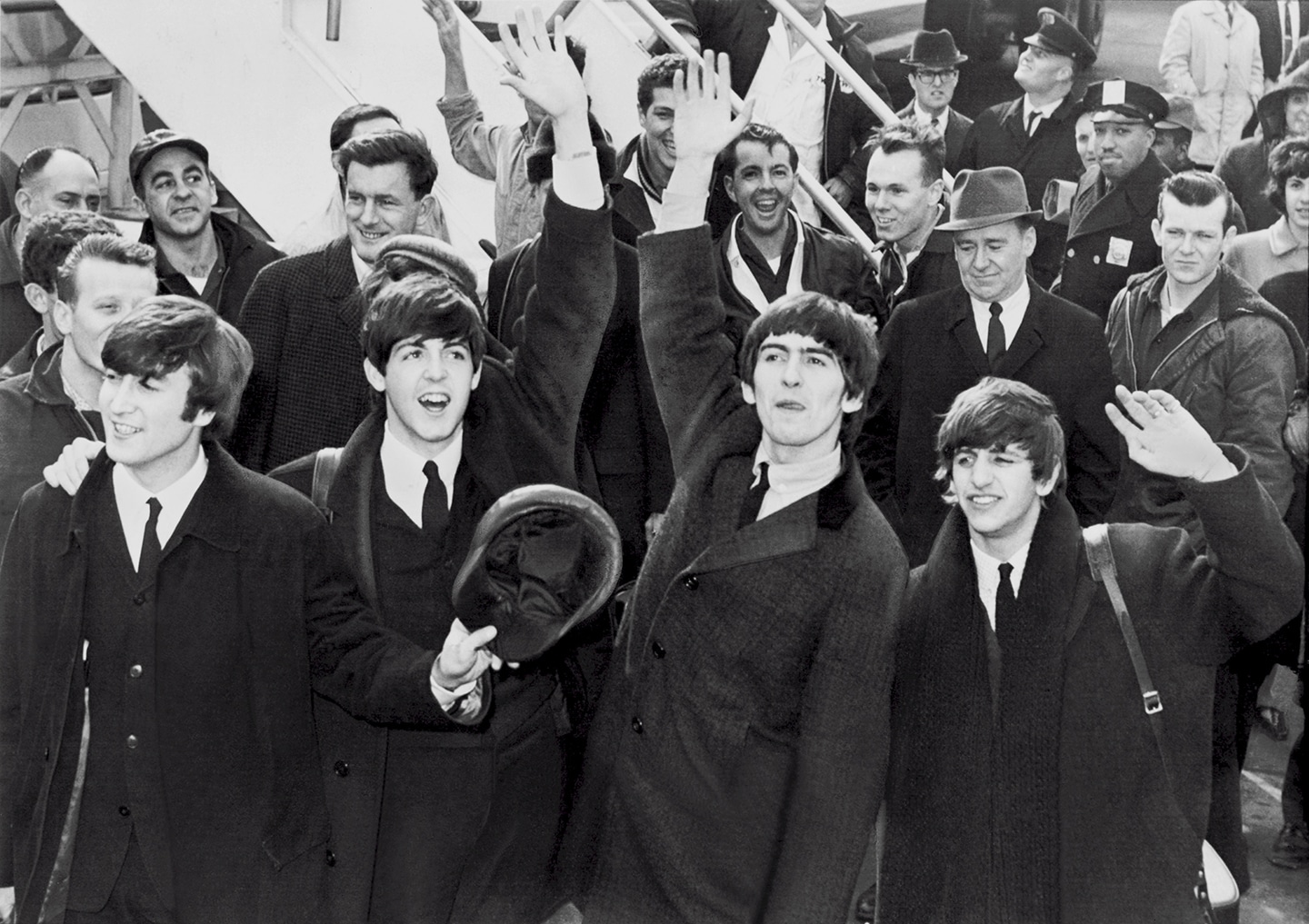
Although history is made every day, there is so much to keep up with that we soon forget it—and that’s assuming we even learned it in the first place. Unfortunately, that never stops grumpy cranks on the internet from complaining that people have no respect for the old days. These cantankerous gits seem to forget that since WW2 the world has experienced the Cold War, worldwide massacres, men landing on the moon, the fall of communism, and the advent of computer technology. Frankly, I’m not sure exactly what subjects those grumps expect us to concentrate upon.
Yet there are some aspects of history that, for better or worse, we can’t get enough of—such as why the Beatles broke up. Whether it is details about the split itself, or the subsequent solo careers of the Fab Four, it’s all a source of endless fascination.
Now some individuals are understandably overwhelmed by it all and might, on occasion, feel like telling Beatles fans to “give it a bloody rest.” Remember William Shatner’s comedy skit in which he semi-jokingly tells his Trekkie fans to move out of their parent’s basements and get a life? (See Note 1) Well, sometimes Beatles fans are not that far behind.
But there are many good reasons that the Beatles continue to hold our attention. They were four lads who, as if favored by the gods, had been granted astounding gifts: cinematic looks, razor sharp wits, an ear for great songs, and the motivation to chart new musical paths. Even now, fifty years later and with infinite listening options at hand, we still enjoy their music and their mystique. Just look at the top dollar people pay to attend a concert with Sir Paul or Sir Richard (Ringo) so they can see an actual Beatle in person.
This past year, both out of boredom and curiosity, I plunged deeply into the world of Beatles books and podcasts. Putting aside my remark about some Beatles fans being like Trekkies, there is a lot of interesting scholarship out there and it wasn’t long before I had two dozen more Beatles books on the shelves and over 250 hours of downloaded podcasts…but hey, what else does one do during a COVID lockdown or while walking the dog?
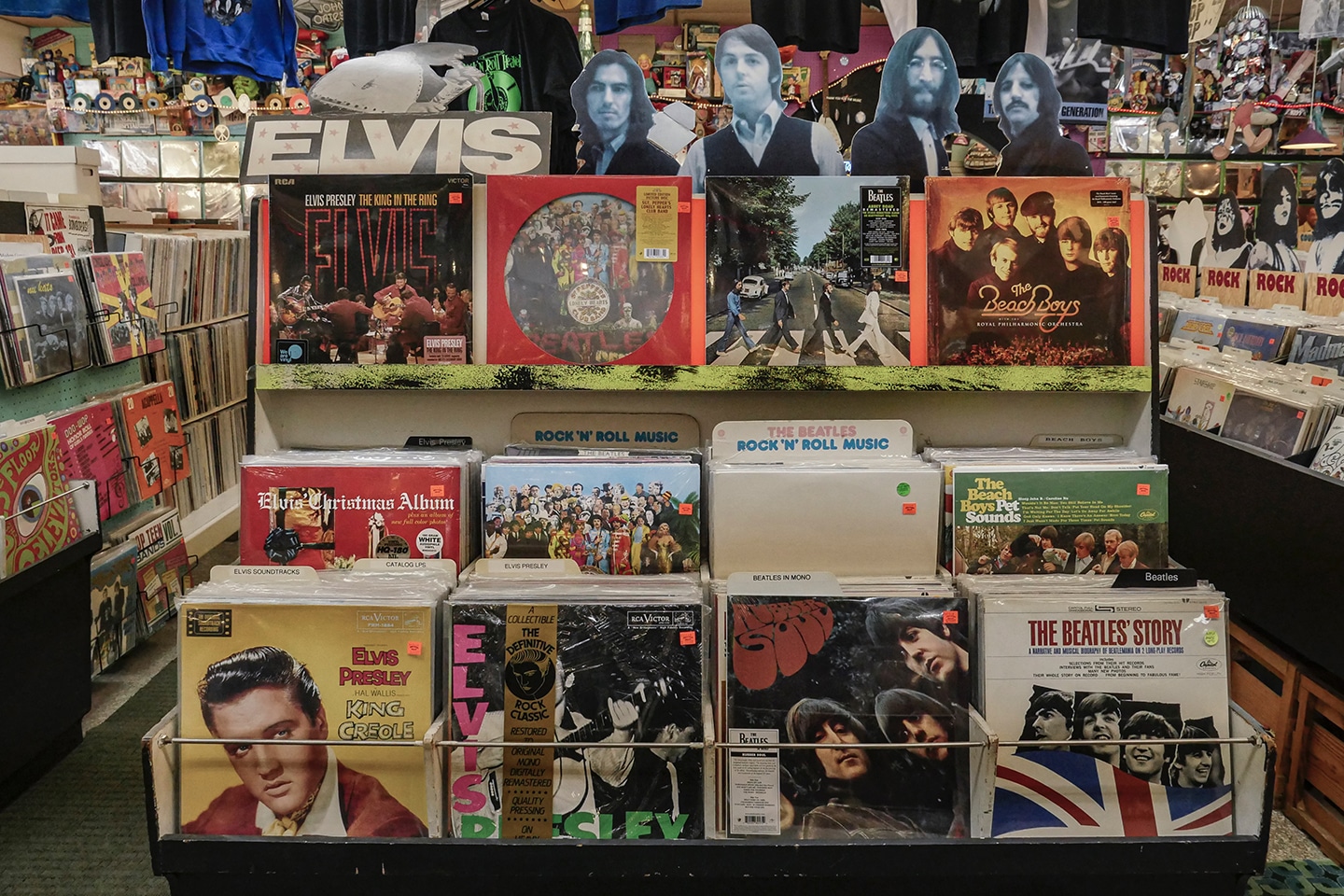
Visit any record shop
and you’ll find the Beatles are still in vogue
First, we need to recognize that they were four separate individuals
When we look at Beatles album covers from 1963 to 1970, we always think of them as one inseparable unit. Nearly every cover (except the White Album and Yellow Submarine) has them pictured cheek-by-jowl. But their quite distinct personalities played a role up to, and during, the split.
First however, a very basic review of the separate periods in the Beatles’ history might be useful. (Note 3)
- In 1956/57 John Lennon, who was a born leader in many ways, forms the schoolboy group The Quarry Men. This nucleus, after a few name changes, eventually becomes the Beatles.
- In mid-1963 Beatlemania catches fire and burns brightly until late 1965. This period is roughly book-ended by the albums Please Please Me in March 1963 and Rubber Soul in December 1965.
- 1966 sees the end of their touring and the beginning of more serious studio work—a bit of it certainly influenced by LSD. This is heard in the albums Revolver and then, in 1967, Sgt. Pepper Lonely Hearts Club Band. Many argue that this psychedelic period also includes Yellow Submarine, Magical Mystery Tour, and singles such as Strawberry Fields Forever.
- In early 1968 the foursome took a meditation retreat to Rishikesh, India and returned with a platter full of ideas that they immediately buckled down to record. This, of course, was the double album The Beatles, better known as the White Album.
- After the White Album came the tumultuous Twickenham and subsequent recording sessions that yielded the Let It Be album of late Spring 1970. The group performed a 45-minute live concert on 30 January 1969 on roof of their Apple Corp headquarters. During the spring and summer, they recorded Abbey Road.
- The breakup announcement came in the Spring of 1970 and signaled the start of years of legal wranglings. During 1970 each of the four Beatles released the first of many solo albums.
To make it really easy, we can break this down into three simple categories: The time together as a band, the breakup period of late 1969 to early 1970, and their subsequent solo years.
There was a gradual shift in writing and recording interests
In the early years the Beatles worked astonishingly hard—and that is an understatement. Sure, all good musicians do, but the lads were absolute musical machines—touring, producing albums and singles, starring in the Hard Day’s Night film, making television and radio appearances, and granting press interviews. While they were doing all this, they were under an ever-increasing crush of worldwide fame. They also were driven by their competitive desire to prove wrong those critics who said the group was just a passing fad.
They stopped touring however, in August 1966 as they had grown weary of the screaming audiences and life on the road. John Lennon, always one to give voice to his innermost thoughts, expressed to a reporter that he didn’t feel that what he was doing at that moment was what he was put on earth to do. Clearly the group was ready for new things and they gladly put aside the grind of live performances.
The retreat into the studio was, as we know, a series of breathtaking successes. The album Revolver, with the psychedelic song Tomorrow Never Knows, was a musical game-changer and of course Sgt Pepper’s Lonely Hearts Club Band took the world by storm. Both albums have stood the test of time and are considered monuments in rock history.
Yet around the time of Pepper the first cracks started to appear in the Beatles fundament (see Note 4) with George Harrison not playing quite as integral role on Pepper that he had on previous works. On the tracks where he did make significant contributions, such as Within You Without You, he clearly was displaying his burgeoning interest in Indian music and spiritualism. Obviously not a major fracture, but one that nevertheless revealed a subtle divergence of musical and writing interests.
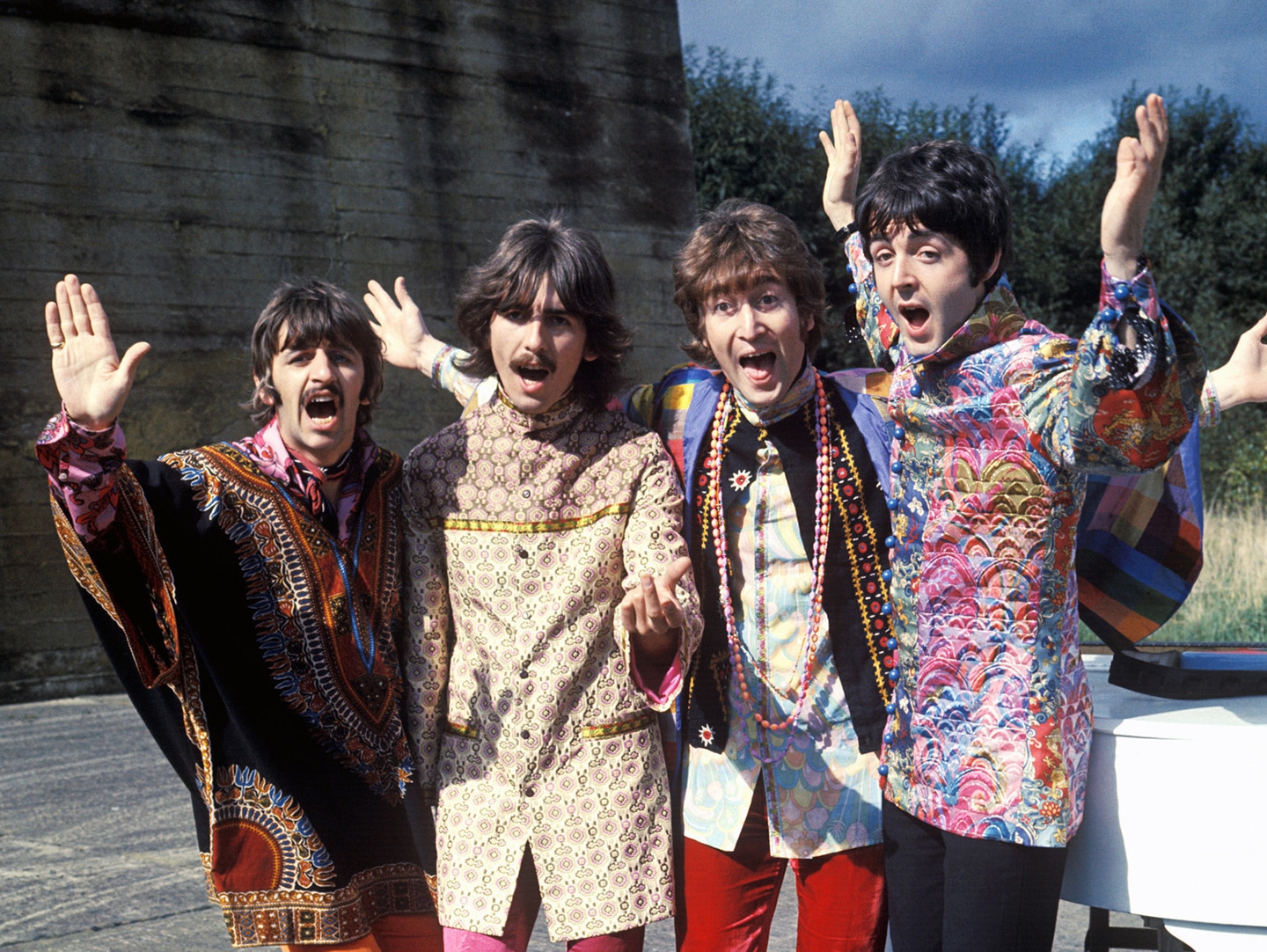
The Very Magical
The loss of Brian Epstein rocks the group to the core
Not long after Pepper was released Brian Epstein, the group’s manager and guiding hand, died of an accidental barbiturate overdose. Although his day-to-day involvement had lessened somewhat after the band stopped touring, he was still the adult leadership that kept everything humming along. His death left them rudderless and created a vacuum, at least in regard to administrative issues, just when it was needed most.
Many historians maintain that it was about this time that Paul McCartney started to play a more dominant and controlling role in the band’s leadership—with some arguing that he even began to be overbearing. Simultaneously, John Lennon’s acid usage led to him to be more frequently disengaged. Was he resentful of the perception that he had ceded leadership of the group to Paul? This is hard to say as the Lennon/McCartney creative dynamic was so special and tightly intertwined that we can’t view any leadership roles as if it were like a teeter-totter that rocked back and forth.
There is no doubt however, that Paul was the keenest of the four to keep the band together and that this keenness could lead him to occasionally push rather hard.
The White Album reveals the musical fecundity in the band, but also a level of independence
After the group’s meditation retreat to Rishikesh, India the group recorded the White Album—an astonishing mélange of sound with everything from Harrison’s While My Guitar Gently Weeps to McCartney’s Helter Skelter to Lennon’s Julia and Happiness Is A Warm Gun.
While this album was a tour de force into which the four poured lots of hard work, it does reveal definite streaks of independence among the “boys.” In fact, Lennon quipped they were often just serving as each other’s backing musicians on the tracks. In other words, the author of a song was in control and the others were there simply to support the effort.
Many argue, rightfully, that when an artist has a concept in his/her mind as to how a song should “go,” that it’s normal that the other musicians follow. True, but the Beatles had been, at least until Pepper, an extraordinarily collaborative and self-editing unit (See Note 5). Obviously, they still collaborated intensely on the White Album, but there was also a growing independence.
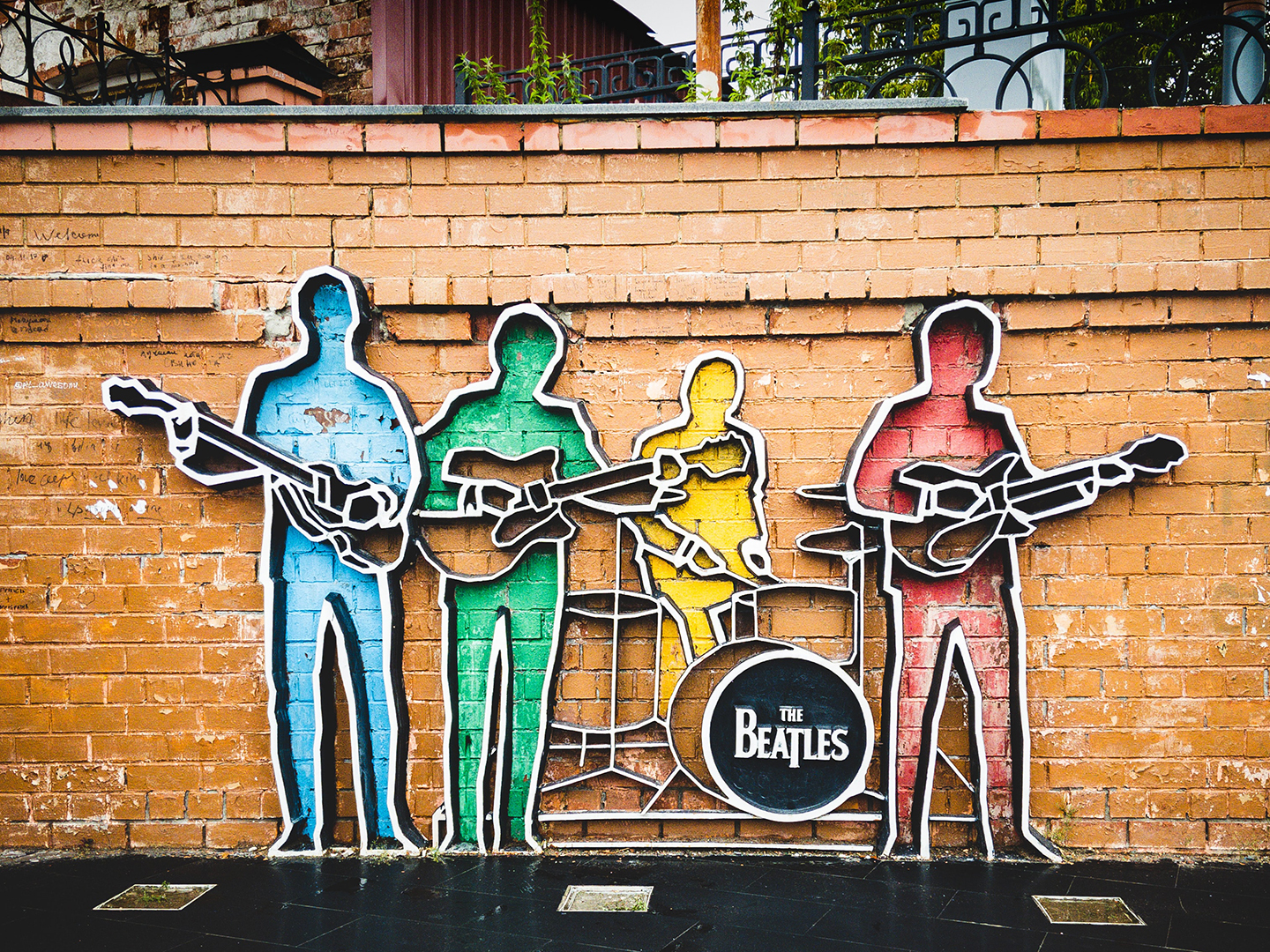
Forever emblazoned as a quartet
During these recording sessions the tempers sometimes openly frayed. Ringo actually left the band for a couple of weeks and had to be coaxed back—leaving Paul to do the drumming on Back in the USSR and Dear Prudence. Recording engineer Geoff Emrick, the young wizard behind Revolver, found the atmosphere among the four to be so toxic that he quit the project completely. The truth is, as almost always with the Beatles, somewhere in the middle. The early sessions were apparently fractious with a short-temper or two, but then they found their groove and brilliantly brought it all together by the end.
George Harrison however, was certainly growing more frustrated. As the youngest Beatle he was often, even if only very subtly, treated as a junior member in comparison to the storied Lennon-McCartney songwriting juggernaut. He had been penning a growing catalog of songs, but John and Paul were turning many of them down. He obviously was not completely shut out, but he did feel that his writing and playing contributions merited more recognition.
In retrospect it is clear that no matter how good or bad the atmosphere was in the studio, after the White Album the group should have taken a long break to work on some solo projects. But that was not to be and instead, in late ’68 and early ’69 they plunged into a film and recording effort entitled Get Back in which they wanted to return to their rock and roll roots and eschew the studio “trickery” (as they saw it) they had been employing.
Their famous roof top concert at the end of January 1969 provided an interesting and unique interlude, but the recording and filming sessions themselves were muddled. In fact, it was only after producer Phil Spector remixed the tapes at John Lennon’s behest that the album was finally released in 1970 as Let It Be. While there are undoubtedly some great tracks on it, overall, the work was not as well received as some of the group’s other albums.
Additionally, because of the tapes and film that have filtered out from these sessions there exists a reputation that they were continually sour and angry. There indeed was some sourness as George Harrison, just like Ringo before him, left the group and, again like Ringo, had to be coaxed back.
Yet this reputation of outright strife has been exaggerated. There were many remarkably collegial and happy times in the studio. Nevertheless, good reader, you see the pattern that there was friction and one can only ride a roller coaster for so long before it gets tiring. (As an another aside, Peter Jackson is re-working the video of the Let It Be sessions and in late 2021 we hope to see what exactly what was going on in the studio among the Beatles.)
Now the endgame starts…
Thus, as we arrive in the late Spring of 1969 and the sessions of what would become the Abbey Road album, it is worth backing up just a bit and to discuss the two most controversial and crucial elements in the Beatles split: the arrival of Yoko Ono into John Lennon’s life and the convoluted business agreements with the music agent Allen Klein.
Now, Yoko Ono is a topic that occupies entire books and thousands of hours of discussion. Her controversial part in Beatles history is still as hotly disputed today as it was fifty years ago. Eight years older than John and an avant–garde artist of sorts, she was, to say the least, superhuman in her persistent efforts to gain entry into his life.
John Lennon had a tumultuous childhood. His father abandoned the family early in John’s life and while he was still a teenager his mother was struck and killed by an errant driver. Although he lived a comfortable middle-class existence with his Aunt Mimi, he became a trouble maker. He was scholastically lazy but remarkably nimble of mind. He set off in art college (as did Eric Clapton, Jimmy Page, Pete Townsend, Ronnie Wood and other rock stars) but soon lost interest. Fortunately, he was able to channel his many talents into music.
He had a quirky and admirable facility with words—which, although he could at times use to cruel and vulgar purposes, could also be the avenue through which he captivated and enchanted listeners. He was frank, hyperbolic, and could contradict himself many times even during the same interview. He took contrarian views, but he was often ahead of many of his musical peers in wrestling with the issues of the day. Granted you might not like all those ideas, but credit is due, if I might paraphrase George Orwell, to how he thought instead of reflexively being against what he thought.
Recognizing his past and his artistic inclinations, Yoko wasted no time in plugging into what she perceived to be his needs and desires. She seemed to fill the hole of his failed first marriage to Cynthia as well as his increasingly creative estrangement from Paul McCartney. Lennon always seemed to be looking for the “the next big thing” and she was, for better or worse, “it” at that moment.
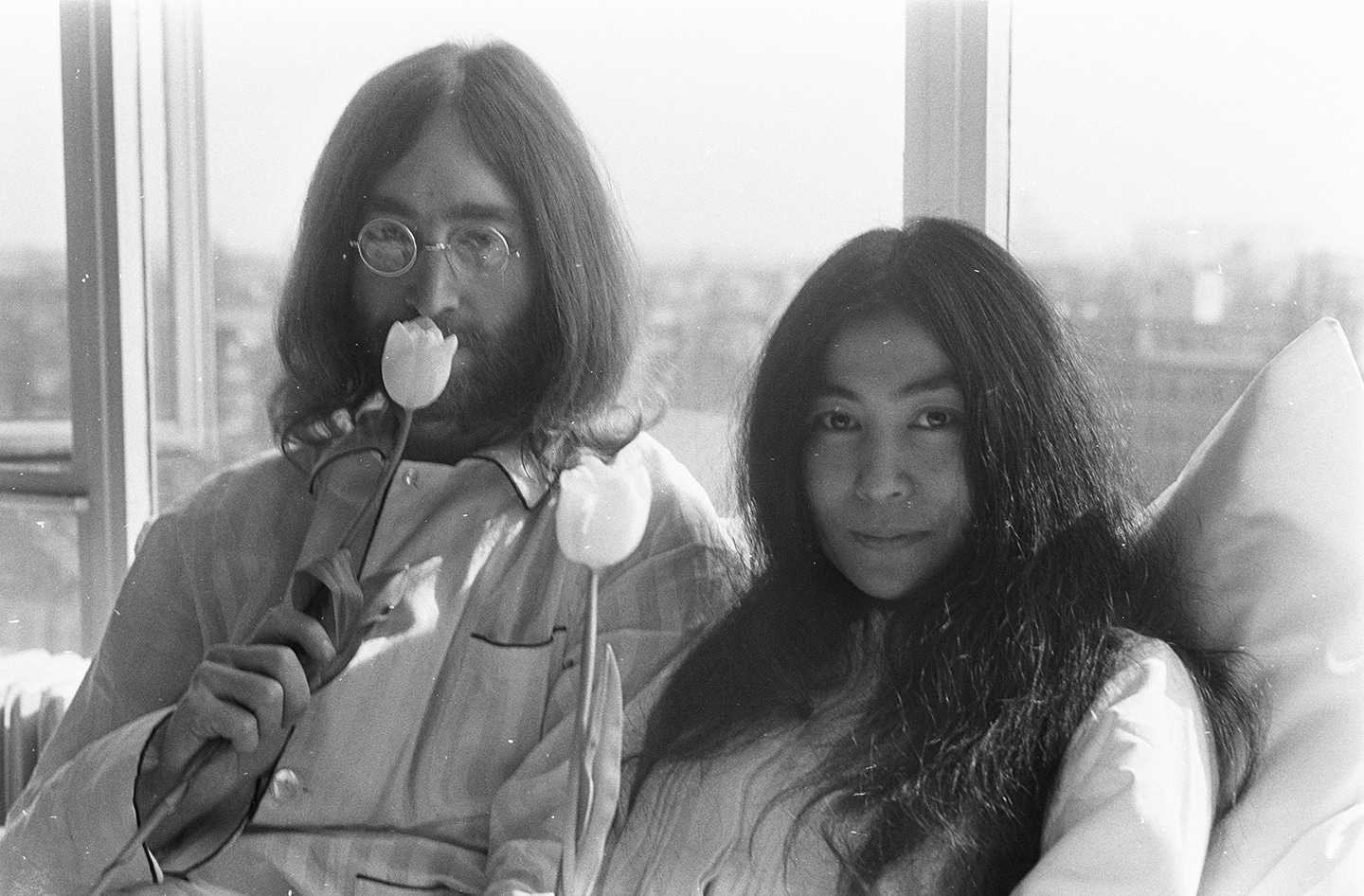
Yoko Ono & John Lennon
One can’t help but feeling however, that Yoko Ono tracked John Lennon down just as a lion would an unsuspecting gazelle on the African savannah. We cannot, of course, judge how real the love was, but the fact is that John allowed Yoko both into his life and more importantly for this discussion, into the recording studio where she thought, with a confidence bred only by musical ignorance, that she could give input into the Beatles music. She might have been intellectually superior to Lennon, but he was her musical superior and her intrusion into the studio did not serve the band well.
As an example of the strain this must have been to all involved, just listen to the infamous Yoko needs a microphone clip from one of the Get Back sessions. Now that is truly frightening. The other Beatles were outwardly diplomatic at first about this, but it apparently angered George to no end and it is no leap to see why. How long would you tolerate that in your workplace? It couldn’t have been good for productivity—something made worse by John and Yoko’s reputed ample use of heroin.
John Lennon once said, earlier in his life, that avant-garde was the French word for bullshit and wanted nothing to do with that art scene. Now, however, he was all in—a rather odd about-face…
My goal is not to slag Yoko, but rather to narrowly focus her presence in the context of the Beatles breakup. In fact, there are those who have worked with her speak well of the experience or are at least neutral, but in 1968/69 her screaming and performance art ideas were leagues away from what the Beatles were the best at doing—and that is producing rock/pop music. Yet the reality is that it was John who granted her access to the Beatles world and allowed her to continue on in the manner she did.
The second major “shakeup” factor in this period of Beatles history was the arrival of Allen Klein. Klein, like Yoko, is also a figure of controversy, but briefly put, he was an American music agent who appeared on the scene eager to take over the group’s financial arrangements, contract negotiations, and other administrative duties. We remember that when Brian Epstein had died the group lost their guiding hand in these matters and, as good as the Fab Four were in creating music, the staggering complexities of everything else was too much for them. What they needed was strong and honest representation. Needless to say, Allen Klein was not the right man for the task.
Klein, a pro at ingratiation, buttered up John and Yoko in a truly remarkable way. With cunning instinct, he immediately recognized that the path to John was through Yoko and so he promised to promote her art and film projects. Yoko was savvy, but not this time and she quickly fell for these promises. As far as John is concerned, his drug use seemed to have dulled his previous expert 6th sense in spotting a phony a mile away.
Ringo and George followed John’s lead while Paul wanted his wife Linda’s father and brother team to take over. This spat grew ugly and is one that is filled with endless starts and fits.
Either way, after John and Yoko gave a concert in Toronto in late ’69 (Here she is at this concert doing her screaming routine: Yoko Screaming. She made a habit of this as we see here as well: Chuck Berry and Yoko) John decided he wanted a “divorce” from the Beatles. Klein advised him to keep it under wraps for a bit as he was worked the legal angles, but Paul cracked it open in 1970 when he announced that he was finished with the band. Years of legal battles ensued until when, in 1975, the dissolution of the group was made official.
In retrospect Paul and John should have, as a workable compromise, opted for a third party to come in and do the administration. Neither side budged however, and it all came to grief. In the end Paul was correct in his misgivings. They had been warned about Klein and he did indeed turn out to be bad news. In fact, he later went to jail for lying about his taxes.
Does this mean that it was Klein and Yoko, with her intent of pulling John away from his bandmates, who were fully responsible for the breakup? Not completely. Instead, most experts agree that they were just two more factors in tipping over a building that was already falling. A good analogy was that it was not the iceberg alone that sunk the Titanic, but rather a series of major errors that sent the greatest ocean liner to the bottom of the sea.
Writers have, in my view, for far too long focused on the negativity and rancor of the split. But even at the end, as we hear on parts of Abbey Road, there was an astounding amount of creative collaboration. But, as McCartney so succinctly put it, “You can’t reheat a soufflé” and so it seemed that the bottom line of the breakup was that four young musicians were ready for time apart and solo careers. Now we can argue if their solo work was equal to their accomplishments as a group, but that was for them to discover and not for us to judge with the advantage of hindsight.
Such was the abundance of material that each of them had in reserve, that almost immediately after the breakup they all had albums published. John was slain by an assassin in 1980 and George died in 2002 so their output was not as robust as Paul’s in his many musical incarnations.
They did however, work with each other at various times. Ringo drummed for each of them while in turn, George, Paul, and John wrote songs for Ringo. George played guitar on a number of John’s tracks and in 1995 the remaining three got tother for the Beatles Anthology project. Ringo has also appeared in concert with Paul on a number of occasions.
These collaborations are proof that any animosities eventually cooled. While John and Paul did indeed trade sharp barbs on their early solo albums, with time they let it all drop and moved on.
Tracking all their solo work is a subject for another article, but the bottom line is that they were creative men who lived and crafted music as they saw fit. Yes, we often wish that they had remained hermetically sealed in the Beatles bubble, but that is unfair to them as individuals. That doesn’t mean though that the world would have enjoyed at least a few joint appearances, but alas!
Now, fifty years from the split the good news is that all the Beatles music is but a click away. And as far as the hours we spend discussing everything about them? Well, what did they have for breakfast on the 16th of June 1965?
Happy listening and a big thanks to Tim Esco for his ideas and rock-and-roll knowledge.
![]()
- The text on this poor-quality video is reversed so as to avoid a copyright strike, but it does bring back a memory for those of us who saw it live. It is the only copy I can find: Captain Kirk on SNL
- Perhaps the most intelligent Beatles blog out there is https://www.heydullblog.com/ The contents here are absolutely outstanding and provide clear thinking in a field where so much is fogged over by idol worship and fandom. I can’t exaggerate at just how good this site it. Mark Lewisohn is one of most detailed of the living Beatles writers/scholars so any work by him is definitely worth the time. Ray Connolly’s book on John Lennon is excellent while Craig Brown’s The Beatles in Time is a quirky and fun look at the Fab Four. There are many podcasts, but two stand out among many good ones. The Beatles Naked by Richard Buskin is one I very much enjoy. Buskin is an Englishman who brings humor and great guests to the table. I have no idea where he got the name for his podcast, but it is G rated with straightforward content. The other is Robert Rodriquez’s Something About The Beatles. The first 150 episodes are co-hosted with the aforementioned Richard Buskin until they, for some unknown reason, went separate ways. Rodriquez can come across as intense until you get use to his style, but the content is outstanding.
- Ah, yes. It wouldn’t be a Beatles discussion without everyone dividing up these periods differently. What I posted is just a rough guide. You are welcome to take a month free from work and plunge into all the books should you wish for more details!
- Historians will point out that Harrison and Lennon might have been thinking or mentioned breaking away from the Beatles well before Pepper. Again, I use this just as a rough milestone to give the reader an idea that their interests were slightly diverging. Harrison sadly never seemed to get the full recognition he deserved from Lennon and McCartney. To be fair, Paul always helped him immensely on his tracks, but it seems he deserved a bit more positive and regular feedback. Being in the world’s most popular band did have a drawback or two.
- One of the Beatles great strengths was their self-editing capability. They were quite frank in the creative process and if something were not a “best fit,” they either corrected it or dropped it. One thinks here of that maxim I often quote of it’s not who is right that is important, but rather what is right. The Beatles so often, instinctively and correctly, gave the primacy of place to the musicality.

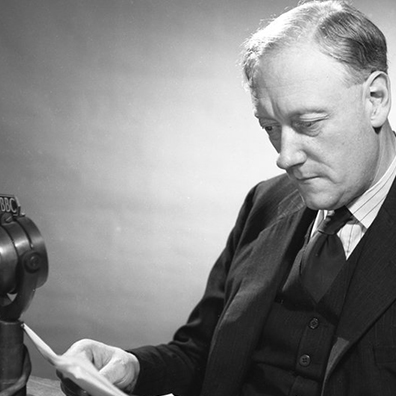
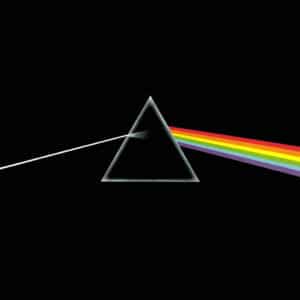
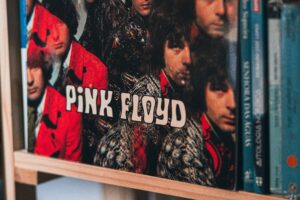

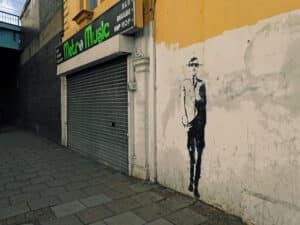
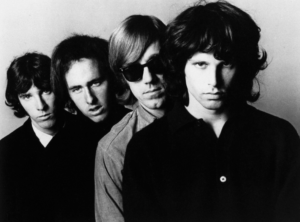
Neal, thank you for that concise retrospective on a complicated, and quite voluminous subject. Just a couple of rambling notes here. I was listening to XM Radio one night to Greg Kihn’s show (of his eponymous ‘Greg Kihn Band’ fame). He had an audio clip of the 4 Lads in the studio when John played a bit of his latest idea for a song, “Strawberry Fields Forever”. Although the clip was extremely rough, and a mere approximation of the final product, he played a few bars and when he was finished Paul exclaimed “that’s bloody BRILLIANT!”. Unbelievable stuff. The other point is how much the other three Lads loved Ringo. Although he was the eldest, the others seemed to be super protective of him. I often wonder what would have happened if Ringo had been leaned on for direction a bit more after the loss of Epstein. We’ll unfortunately never know.
That’s an excellent example Phil and not one that I have run across yet. For all the real, or perceived, acrimony that could crop up amongst the four, they were first and foremost artist/musicians and they recognized brilliance when they saw it.
A lot of observers (the sound engineers for example) who were there watching it all happen, all talked about the synergy that sprung up when they were all together in the studio–one of those cases where the sum was greater than the parts even though, in this case, the parts were pretty awesome.
Thank you for reading and commenting.
Btw, in my humble opinion, I think Strawberry Fields is still one of the greatest rock songs of all time–for reasons that perhaps touched on in another post.
Enjoyed reading this! Thanks.
Neal,
Truly enjoyed the piece.
Their story seems to run parallel to a pattern I perceive among artists. In the beginning it is fun, and those involved seem astonished that they draw attention.
This phase passes as the idea arises that it is now more about art than fun, and we get to witness the artists’ mid-career crisis as they reorient to find that art. This is often a significant departure from that which brought them to our attention in the first place, and – perhaps – can only be appreciated by mere mortals decades after-the-fact in the retrospective.
The pattern tends to run later to acrimony, bitterness, embarrassment, and the sense that they begin to take themselves (and their perceived importance in non-artistic efforts) far too seriously.
The pattern I’m describing which is broad and simplistic I feel can be roughly applied to others, including The Beach Boys (or Brian Wilson…), Springsteen, Michael Jackson, Sinatra, Prince, Madonna, and perhaps Elvis. I’m sure you can name others.
Still, might be seen as better than that other discernible pattern of dying too young in a plane crash or drug overdose!
Thanks for the bit on Fab Four. I learned things I didn’t know. Oh – and well-written, as has become a habit of yours!
Thank you for the kind words Fitz as well as the insight.
You bring up an excellent point that is well worth mulling over. How many artists/groups have followed the trajectory that you described as being fun, fresh, and creative but then go through subsequent phases which are, to put it gently, well outside their lane either musically, culturally, or both? Conversely, it leads one to think how many have been able to successfully navigate a career in music while still being entertaining with their feet on the ground?
As a perhaps surprising example…whether one is a Country and Western fan or a Metal Head, there is agreement that Dolly Parton is a person who kept it together for decades. I mention her both for the philanthropy work she does as a private citizen as well as the effortlessness with which she can take the stage at the Glastonbury, England rock festival and absolutely charm the audience. What do even the intellectually inclined journalists who have interviewed her say? That she has retained the fun, never takes herself too seriously, and enjoys singing for an audience. For her there is no “this type of audience” or “that type of audience,” but rather people who enjoy entertainment. I probably will not buy any of her albums, but artists like these kept going by avoiding climbing into a bag of stage or screaming into a microphone as did JohnandYoko (all the words together on purpose). In other words, as consumers it is more often the music we care about and not the brand.
Once again Neal, a well written piece. Easy to read, fun, and yet informative. I love how you used your background in aviation to describe how things may have gone in the studio. The focus not the tenants of crew resource management: what is right, not who is right seem very applicable to the recording studio as well as the cockpit(maybe the OR too). Keep up the great work. Oh, is there any truth the rumor you will be writing for The Atlantic soon?
Thank you Phil
The Beatles really did, at least early on through about Pepper, have an amazing self-editing and feedback system in the group. It is said that the Monty Python troupe did as well. No one person had the final say–it was instead what was best/right, Granted we as listeners might not always think any one song is a masterpiece for the ages, but at least they thought it was the best they could do at that one time.
I imagine this could be a good topic for one of the business type books that becomes a million seller–that organizations and units that excel probably have a real self-check mechanism built in. What I wonder however, is if it is possible in a hierarchical type organization such as the military (other than the general trying to be informal with “Just call be Bill) or must it be in groups of near equals?
Thanks again for reading.